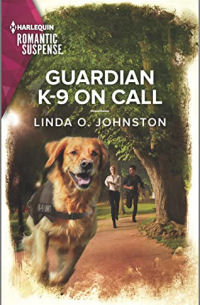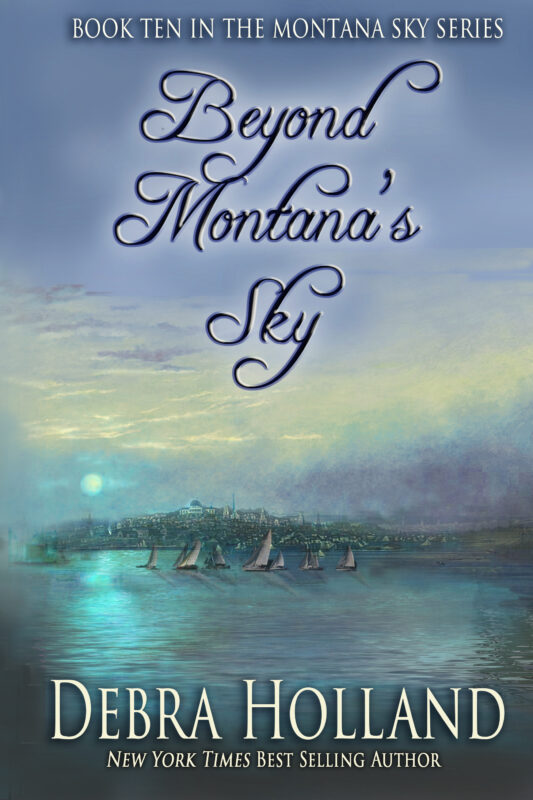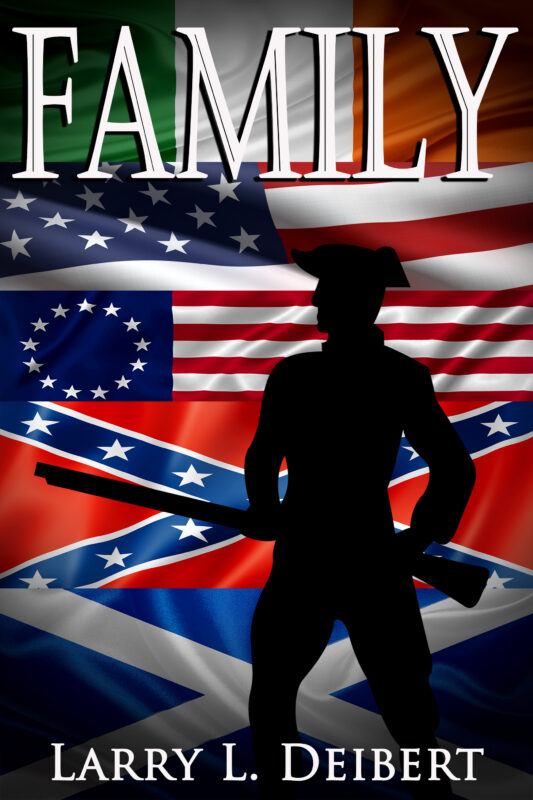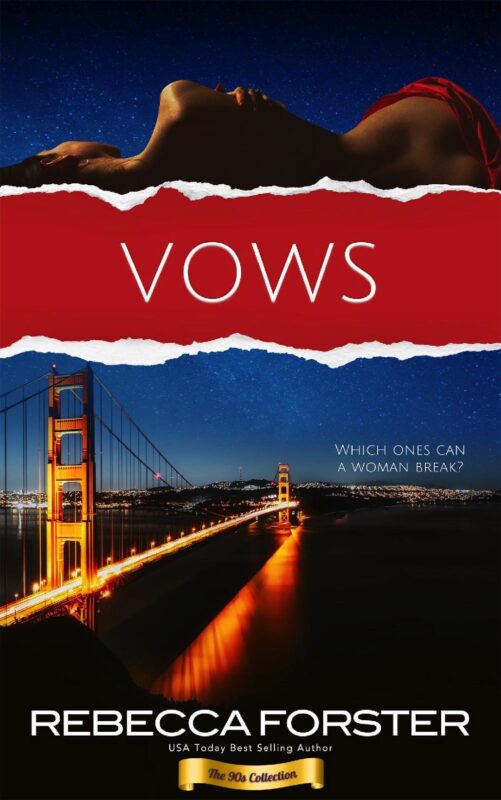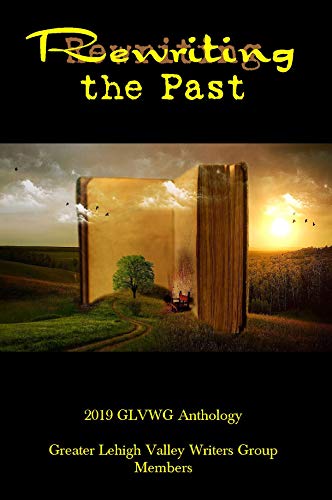PORTMANTEAUS*
July 19, 2020 by Jenny Jensen in category On writing . . . by Jenny Jensen, Writing tagged as #writing, editing, words
We’re so lucky. The English language is like play dough.
Oh yes, we have strict rules of grammar, tense, POV, all the way to the minutia of intransitive verbs. We can choose from a number of eminent grammar and style guides to ensure conformity. We have stalwart English teachers to drill those rules into our heads so that we are all on the same page. (And bless them all – there is nothing better than order over chaos). But despite those rules a writer has so much freedom to shape our mother tongue into forms wry, brittle, silly, heartbreaking, snarky or just plain mad.
I don’t have much command of any other language; a smatter of German, a soupçon of French, about a third cup of Latin and a healthy plateful of Spanish. But I do know that the rules of those languages are not as forgiving as English — not as much room to roam before you run afoul of the language police. English allows us to mangle all the rules of spelling, meaning, and sentence structure to reflect dialect, or character traits, add color, shift perceptions or mood and anyone with a good command of English can understand — and only pedants ever complain. Of course, you have to use the rules of punctuation. Gotta have those traffic signs.
Anthony Burgess used bits and pieces of Russian mixed with Shakespearian English and other tongues to give us Nadsat, the terrifyingly unique argot of his dark characters in A Clockwork Orange. The reader may have had to work at it a bit, but it was intelligible and colored the story with an unforgettable feel. Fantasy and Sci Fi from J.K. Rowling to Ursula K. Le Guin play with all sorts of mixed up language that become magical words and when you’re reading in those worlds you understand.
Dialect and special vocabulary enrich a tale on many levels and I’m in awe of those writers who do them well, but my favorite form of play dough English is the portmanteau. Anybody can create one of these inventive combinations, and everybody does — usually with something faintly deprecating or ironically funny in mind. And with just one word a portmanteau can ooze with meaning. Frenemy speaks volumes — we’ve all had one and it’s exhilarating to give ‘em a proper name. Craptacular very neatly wraps up the verdict on so much of our over-hyped media. And then there’s pompidity, my own invention from University days when I struggled to describe the quality of politicians.
All writers love words. Words are paint, chisel, fabric, and clay for our creativity. If you can’t find that one word that perfectly reflects your intent, try cobbling a new one together — no one will take points away. Blog is a portmanteau (web log) so if you’re lucky enough to have your portmanteau go viral, you might wind up in the OED.
 With a BA in Anthropology and English Jenny pursued a career in advertising and writing and segued into developmental editing. She has worked on nearly 400 books during her career. Her clients include both traditionally published and indie authors. She has worked in every genre from romance to horror and thrillers as well as edited Air Force manuals, commercial communications and memoirs. She offers every service from copyediting to developmental coaching.
With a BA in Anthropology and English Jenny pursued a career in advertising and writing and segued into developmental editing. She has worked on nearly 400 books during her career. Her clients include both traditionally published and indie authors. She has worked in every genre from romance to horror and thrillers as well as edited Air Force manuals, commercial communications and memoirs. She offers every service from copyediting to developmental coaching.
*This blog is an oldie but goodie, originally published in March, 2018
2 0 Read more
Share if you remember when…..
July 20, 2017 by Meriam Wilhelm in category Writing tagged as #writing, Family, Memories, reading, sewingI recently posted a picture on my Facebook site of a Simplicity sewing pattern from around the 1970’s. The banner on the top read, “ SHARE IF YOU REMEMBER WHEN MOM WOULD MAKE YOUR CLOTHES.”

Boy, did it stir some special memories of a different time and place. In one short afternoon, hundreds liked it and over the days that followed many more liked, shared and commented. The comments keep coming. It’s probably one of the most active posts I’ve ever had and I’m guessing that many of the comments came from men and women in their 50’s and 60’s.
Some remembered their mothers (or grandmothers) sewing them everything from pajamas to school uniforms to prom dresses. A few bragged that their moms made clothing for their Barbie, Ken and even GI Joe dolls. Some struggled through Home EC classes themselves and shared tales filled with evil task masters and measuring tape miracle workers. It was not uncommon to hear about failed sewing projects that made their way home only to be resuscitated by mom. A few said that they themselves now successfully sewed for their kids or that they had friends who had become master seamstresses.
There were some lovely, often humorous, memories shared and it really got me to thinking.
I have four real passions in my life: Family, Writing, Reading and of course, Sewing. And as I was thinking about it, I realized that each of these passions grew from time spent with my mother. To mom, family was everything and she raised us to always remember that. She was an avid reader, a poet and a phenomenal seamstress. And through her example, she ingrained a love for each of these things in me. Those are such wonderful memories to have.
My own kids have grown up watching me living a life centered around my family, always working on a sewing project, with a book close in hand. Recently they watched me as I’ve thrown my hat into the writers’ ring.
So now I have to I wonder what tales they’ll tell when asked…”Do you remember when your mom would…”
Do you remember when your mom…or dad…would…? What would you say?


What Eccentric Writing Habits Have I Never Mentioned? By Connie Vines
October 13, 2016 by A Slice of Orange in category Archives tagged as #connie vines, #Rodeo Romance #the writing process, #writing, #writing voice, #ZombiesMost authors, of course, have personal eccentric writing practices. Fueled, no doubt by his or her personal muse. Agatha Christie munched on apples in the bathtub while pondering murder plots, Flannery O’Connor crunched vanilla wafers, and Vladimir Nabokov fueled his “prefatory glow†with molasses.
Then there was the color-coding of the muses: Alexandre Dumas, for decades, he penned all of his fiction on a particular shade of blue paper, his poetry on yellow, and his articles on pink; on one occasion, while traveling in Europe, he ran out of his precious blue paper and was forced to write on a cream-colored pad, which he was convinced made his fiction suffer. Charles Dickens was partial to blue ink, but not for superstitious reasons — because it dried faster than other colors, it allowed him to pen his fiction and letters without the drudgery of blotting. Virginia Woolf used different-colored inks in her pens — greens, blues, and purples. Purple was her favorite, reserved for letters (including her love letters to Vita Sackville-West, diary entries, and manuscript drafts. Lewis Carroll also preferred purple ink, but for much more pragmatic reasons: During his years teaching mathematics at Oxford, teachers were expected to use purple ink to correct students’ work — a habit that carried over to Carroll’s fiction.
So how do my little eccentric (or never before mentioned) writing practices measure up? Is my personal muse quirky, dull, or out of control?
Since my quirks are normal for me, I had to think about this for a bit.
• I always drink coffee that is part of my current ‘setting’. When my setting is New Orleans I mail order my coffee from my favorite spot.
Café du Monde. I have my cup and saucer, and a portable mug when I writing outdoors. I have a blue coffee pot and matching tin cup when I writing westerns (yes, the coffee is VERY strong and black). And of course, a Starbucks cup or a Disneyland mug when my novels take place in So.Cal.
• My music and my menu planning also is linked to my settings. All within the range of normal. Though I have more than my fair share of coffee mugs and cups.
• I listen to diction videos on YouTube so that I am not relying on my memory for the sound of a Cajun accent, Texan’s drawl, etc.
• I visit areas on Google Earth and Zillow. Even if I have lived or vacationed there, I may have forgotten an interesting ‘something’ I can insert into dialogue, or find a way to describe a scene.
• I talk to myself. Or not simple little sentences. I’m talking about a two- way conversation: “Do you think that might work?†“No. No one is that stupid!†“How about. . .†This is the time my husband walks by to find out who’s on the phone, or if I’m asking him a question. The dog even pokes her head in to see what’s going on. I’m thinking this is a bit outside of the ‘normal’ range.
• When I write I have to make certain my work space in in perfect order. I have colored folders/pens/notebooks that match and are exclusive to the story I’m working on at the moment.
• I never enroll in an online class when I’m writing—it’s guaranteed writers’ block. I never talk about my WIP because I mentally clock that as writing time and lose interest in the story before it’s completed.
• Whatever story I’m am working on is my favorite.
• I survive on 3 hours sleep when I am deep in a story. I know I drink coffee, but seem to run the story in my mind when I sleep too.
• I also pick up the quirks of my heroines. I have several friends who are in theater and said it’s a bit like ‘method acting’. Fortunately, I’m back to my state of normal a couple of weeks after typing THE END.
I think all of this part of a writer’s voice. It is what we, as readers, look for in a story. Hopefully, it is what my readers, enjoy about the novels, short-stories and novellas that I write too.
Happy Reading and Writing!
Connie
Visit My Author Page @ Amazon.com
0 0 Read moreStructuring a Story by Connie Vines
August 14, 2016 by A Slice of Orange in category Archives tagged as #Rodeo Romance #the writing process, #writing, Structuring a StoryWho Wants to Be a More Productive Writer?
March 8, 2016 by Marianne H. Donley in category Archives tagged as #amwriting, #writing, #writingtips, MM Pollard, ProductiveBy MM Pollard, the MM in Workshops with MM,
Certified copy editor,
I think I can safely assume that all writers want to be more productive. If you happen to be one who doesn’t, then feel free to click close now.
Okay, so most of you stayed. How did I know that most of you would stay here? Would you believe I’m clairvoyant? No?
Writers produce writing, coherent words on a screen (paper). If you are happy averaging one hundred words a day, then I suggest you stop reading here. If you want to write more, lots more, then continue, please.
Becoming a more productive writer involves many actions and a few attitudes. Here are a few of both.
Actions:
If you were on a deserted island with only your computer with a fully charged battery, would you write or would you play Solitaire until the battery discharged? (Solitaire players may stop reading and get back to their games. I apologize for the interruption.)
Do those close to you know you write?
Do you write every day?
Do you keep track of your time and words every time your write?
Do you play Solitaire when you are writing blocked, or do you still write something, anything?
Attitudes:
Is writing fun or a chore?
Do you think you deserve to take time out of your day and from your other responsibilities to write?
What’s more important to you? The huge advance you’ll receive with the sale of your book? Finishing that book your family didn’t believe you would ever complete? Releasing your characters from the purgatory of your mind to see the light of a computer screen?
That salve I said I would share with you? This is it – my workshop titled Speed Writing – What Plan Works Best for You? You’ll learn how to form a habit of writing, learn to keep track of your productivity for accountability, learn to deal with issues—those inside you and outside of you. That’s just for starters.
It seems that hundreds of people have written books on increasing speed and word count. I’ll share information from many authors who have increased their word count to several thousand a day or even an hour. I’ll give you another author’s plan to write a novella in twenty-four hours and another author’s plan to write a book in nine days.
The beauty of this workshop is that I have done all the research for you. All you have to do to take the information and see which system works best for you.
I hope you will join me.
MM Pollard
About MM Pollard
 As an English teacher for fifteen years and, currently as editor for Black Velvet Seductions and the MM in Workshops with MM, MM Pollard has helped writers correct ungrammatical grammar, misused usage, problematic punctuation, and poor writing. Check out Testimonials on her blog, MM’s Fundamentals of English. While you are there, sign up for her monthly newsletter and even look at previous newsletters.
As an English teacher for fifteen years and, currently as editor for Black Velvet Seductions and the MM in Workshops with MM, MM Pollard has helped writers correct ungrammatical grammar, misused usage, problematic punctuation, and poor writing. Check out Testimonials on her blog, MM’s Fundamentals of English. While you are there, sign up for her monthly newsletter and even look at previous newsletters.
MM began presenting workshops four years ago and has presented on many sites, including her own. Many RWA chapters, including From the Heart RWA, RWA Online, OCC/RWA, Passionate Ink, Fantasy, Futuristic & Paranormal RW, Maryland RWA, and Florida RW, have also sponsored her workshops. In February, 2015, she presented at FRW’s Fun in the Sun Conference, and her dream come true!
Through her fun workshops—English class can be fun!—MM is sure she can help you, too, master the fundamentals of English composition.
Affiliate Links
A Slice of Orange is an affiliate with some of the booksellers listed on this website, including Barnes & Nobel, Books A Million, iBooks, Kobo, and Smashwords. This means A Slice of Orange may earn a small advertising fee from sales made through the links used on this website. There are reminders of these affiliate links on the pages for individual books.
Search A Slice of Orange
Find a Column
Archives
Featured Books
Newsletter
Contributing Authors
Search A Slice of Orange
Find a Column
Archives
Authors in the Bookstore
- A. E. Decker
- A. J. Scudiere
- A.J. Sidransky
- A.M. Roark
- Abby Collette
- Alanna Lucus
- Albert Marrin
- Alice Duncan
- Alina K. Field
- Alison Green Myers
- Andi Lawrencovna
- Andrew C Raiford
- Angela Pryce
- Aviva Vaughn
- Barbara Ankrum
- Bethlehem Writers Group, LLC
- Carol L. Wright
- Celeste Barclay
- Christina Alexandra
- Christopher D. Ochs
- Claire Davon
- Claire Naden
- Courtnee Turner Hoyle
- Courtney Annicchiarico
- D. Lieber
- Daniel V. Meier Jr.
- Debra Dixon
- Debra H. Goldstein
- Debra Holland
- Dee Ann Palmer
- Denise M. Colby
- Diane Benefiel
- Diane Sismour
- Dianna Sinovic
- DT Krippene
- E.B. Dawson
- Emilie Dallaire
- Emily Brightwell
- Emily PW Murphy
- Fae Rowen
- Faith L. Justice
- Frances Amati
- Geralyn Corcillo
- Glynnis Campbell
- Greg Jolley
- H. O. Charles
- Jaclyn Roché
- Jacqueline Diamond
- Janet Lynn and Will Zeilinger
- Jaya Mehta
- Jeannine Atkins
- Jeff Baird
- Jenna Barwin
- Jenne Kern
- Jennifer D. Bokal
- Jennifer Lyon
- Jerome W. McFadden
- Jill Piscitello
- Jina Bacarr
- Jo A. Hiestand
- Jodi Bogert
- Jolina Petersheim
- Jonathan Maberry
- Joy Allyson
- Judy Duarte
- Justin Murphy
- Justine Davis
- Kat Martin
- Kidd Wadsworth
- Kitty Bucholtz
- Kristy Tate
- Larry Deibert
- Larry Hamilton
- Laura Drake
- Laurie Stevens
- Leslie Knowles
- Li-Ying Lundquist
- Linda Carroll-Bradd
- Linda Lappin
- Linda McLaughlin
- Linda O. Johnston
- Lisa Preston
- Lolo Paige
- Loran Holt
- Lynette M. Burrows
- Lyssa Kay Adams
- Madeline Ash
- Margarita Engle
- Marguerite Quantaine
- Marianne H. Donley
- Mary Castillo
- Maureen Klovers
- Megan Haskell
- Melanie Waterbury
- Melisa Rivero
- Melissa Chambers
- Melodie Winawer
- Meriam Wilhelm
- Mikel J. Wilson
- Mindy Neff
- Monica McCabe
- Nancy Brashear
- Neetu Malik
- Nikki Prince
- Once Upon Anthologies
- Paula Gail Benson
- Penny Reid
- Peter J Barbour
- Priscilla Oliveras
- R. H. Kohno
- Rachel Hailey
- Ralph Hieb
- Ramcy Diek
- Ransom Stephens
- Rebecca Forster
- Renae Wrich
- Roxy Matthews
- Ryder Hunte Clancy
- Sally Paradysz
- Sheila Colón-Bagley
- Simone de Muñoz
- Sophie Barnes
- Susan Kaye Quinn
- Susan Lynn Meyer
- Susan Squires
- T. D. Fox
- Tara C. Allred
- Tara Lain
- Tari Lynn Jewett
- Terri Osburn
- Tracy Reed
- Vera Jane Cook
- Vicki Crum
- Writing Something Romantic
Affiliate Links
A Slice of Orange is an affiliate with some of the booksellers listed on this website, including Barnes & Nobel, Books A Million, iBooks, Kobo, and Smashwords. This means A Slice of Orange may earn a small advertising fee from sales made through the links used on this website. There are reminders of these affiliate links on the pages for individual books.




